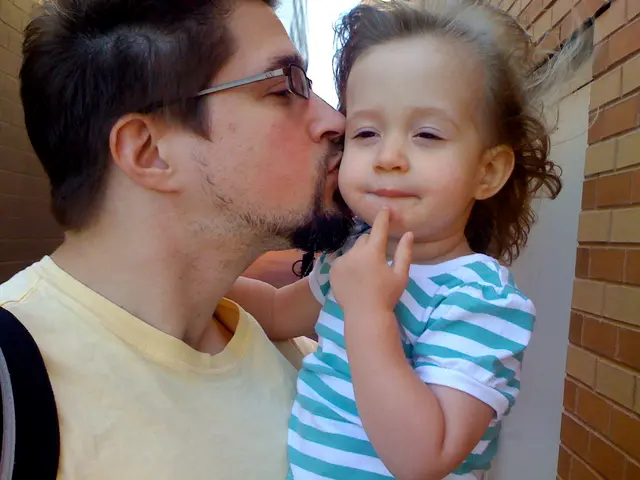Navigating Emotional Growth Stages in Children: A Comprehensive Handbook
Are you ready to dive into the hidden world of children's emotional development? Buckle up, because we're about to uncover the awesome power of emotions in shaping a child's future success and well-being.
Emotional development is like the super-secret sauce of a kid's life – it affects everything from their future success to their ability to build happy relationships. And guess what? The first five years are where it's all going down.
Let's cut through the fluff and break down the three essential emotional stages in a child's life.
- Stage 1: Noticing Emotions (Birth to One)
In this phase, your little one is just starting to get a feel for the world of emotions. They'll express basic feelings like happiness and sadness, and they'll begin to recognize emotions in others, too. This crucial step helps build a strong foundation for emotional intelligence.
- Stage 2: Expressing Emotions (Two to Three)
This is the stage where things start to get real. Your child will show more complex emotions and will start to use words to express them. Oh, and don't be surprised if temper tantrums make an appearance – it's all part of the process!
- Stage 3: Managing Emotions (Three to Five)
Now your child is becoming a little emotional maestro. They'll learn how to control their emotions better, which is key for building resilience and navigating the complex waters of life.
By understanding these stages, you'll be able to empathize with your child and guide them through their emotional journey. And remember, a little (or a lot of) emotional chaos is normal – it's all part of growing up.
You might be wondering – what's the big deal about emotional development anyway? Well, here are five key skills that arise from strong emotional development:
- Self-awareness
- Social-awareness
- Emotional regulation
- Responsible decision making
- Relationship building
Cultivating emotional development from the get-go is the key to your child's overall well-being. So, let's get to work! Create a safe and supportive environment for your child, and never hesitate to have heart-to-hearts with them when they need a listening ear.
Oh, and one more thing – modeling positive emotional behavior at home can have a huge impact on your child's development. Deep breaths, folks – we're all in this together!
Emotional development is a complex beast, with two key areas in play: self (temperament) and relationships (attachment). Having a solid understanding of these basics is like having a secret map to spot and help with any social-emotional issues that may crop up.
Temperament is an innate attribute that makes a child unique, influencing how they act, adapt, and feel. You know your child best, so use that knowledge to create parenting strategies that work for them.
Then there's attachment, the strong emotional bond that forms between a child and their primary caregiver (usually parents). A secure attachment is vital for a child's confidence and feeling safe, especially during stressful times.
Remember this golden rule: a child who feels secure and loved will develop emotional resilience and be ready to tackle whatever life throws at them.
So, there you have it – a refreshed, informal take on the incredible world of emotional development in children. Armed with this knowledge, you're now a superchild-whisperer ready to guide little minds and hearts on their emotional journey. Embrace the chaos, my friends – it's all part of the magic of raising awesome humans! 🦄🌈💪🏽🌟💪🏽👏🏼🎉🚀🌈🦄
- Emotional development, starting from a child's infancy, plays a crucial role in their future success and overall well-being, influencing everything from self-awareness to relationship building.
- By understanding and navigating the three essential emotional stages - noticing, expressing, and managing emotions - parents can empathize with their child and guide them through their emotional journey during the crucial first five years of life.
- Cultivating emotional development early on, by creating a safe and supportive environment and modeling positive emotional behavior, is key to a child's healthy social skills, conflict resolution, and future emotional intelligence.
- The fields of child development, science, health-and-wellness, and parenting all converge to highlight the importance of emotional development in shaping a child's emotional intelligence, social skills, and future success, emphasizing the need for parents to be involved and aware.








